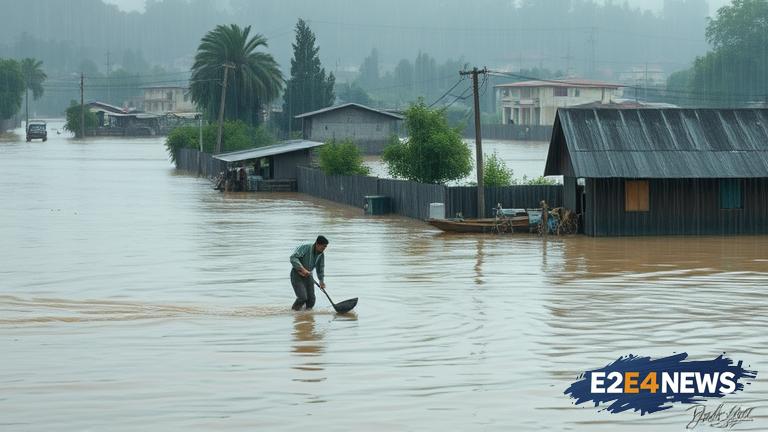Pakistan is grappling with one of its worst humanitarian crises in recent history as heavy rains and floods continue to batter the country. The floods, which have been ongoing for several weeks, have affected over 30 million people, with many more at risk. The situation is particularly dire in the southern province of Sindh, where thousands of villages have been inundated with water. The Pakistani government has declared a state of emergency in the affected areas and is working to provide relief to those in need. However, the scale of the disaster is overwhelming, and many people are still waiting for help to arrive. The floods have also had a devastating impact on the country’s infrastructure, with roads, bridges, and buildings destroyed or damaged. The agricultural sector has also been severely affected, with crops destroyed and livestock killed. The economic impact of the floods is likely to be significant, with estimates suggesting that the damage could run into billions of dollars. The international community has begun to respond to the crisis, with several countries pledging aid and assistance. The United Nations has also launched an appeal for funding to support the relief efforts. Despite the challenges, there are also stories of resilience and courage emerging from the affected areas. Many people are working together to help those in need, and there are reports of communities coming together to provide support and shelter to those who have been displaced. The Pakistani military has also been playing a key role in the relief efforts, with troops deployed to assist with evacuations and provide aid. However, there are concerns that the crisis could have long-term consequences for the country, particularly in terms of food security and economic stability. The floods have also highlighted the need for greater investment in disaster risk reduction and management, as well as the importance of addressing the root causes of climate change. As the situation continues to unfold, it is clear that the people of Pakistan will need ongoing support and assistance in the coming weeks and months. The international community must continue to respond to the crisis, and the Pakistani government must work to ensure that those affected receive the help they need. The floods are a stark reminder of the importance of global cooperation and solidarity in the face of disaster. In the short term, the focus must be on providing relief and support to those in need, but in the long term, there must be a greater emphasis on building resilience and reducing the risk of such disasters occurring in the future. The people of Pakistan are facing a difficult and challenging time, but with the right support and assistance, they can rebuild and recover. The floods have also had a significant impact on the country’s education sector, with many schools destroyed or damaged. The health sector has also been affected, with reports of waterborne diseases and other health problems emerging from the affected areas. The Pakistani government has established a relief fund to support those affected by the floods, and there are also reports of private donations and fundraising efforts. As the situation continues to evolve, it is clear that the people of Pakistan will need ongoing support and assistance in the coming weeks and months.
